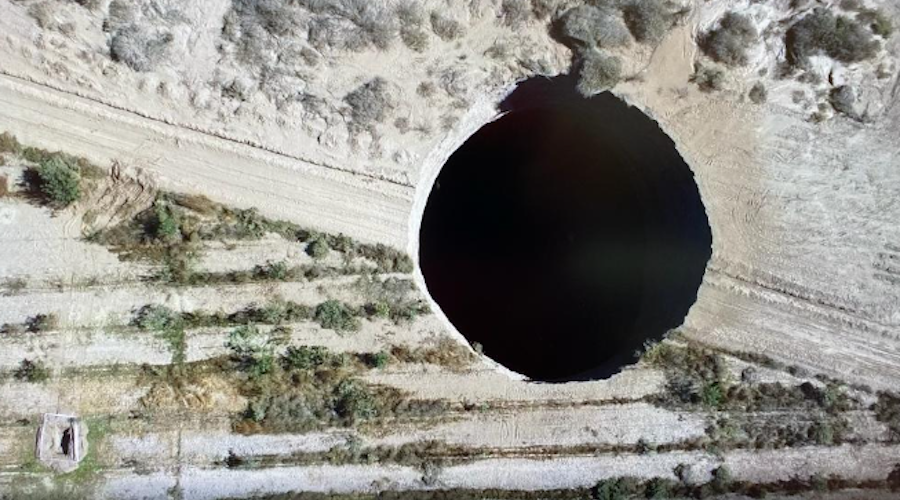Lundin Mining to fill in giant mystery Chile sinkhole

Canada’s Lundin Mining is planning to fill in a giant mystery sinkhole near its copper mine in Chile, an ambitious plan that will also see it attempt to pump out water that has seeped into the mine, a senior company executive told Reuters on Thursday.
The huge 36-meter-diameter sinkhole that opened up in late July in the Tierra Amarilla commune, around 665 kilometers (413 miles) north of capital Santiago, drew widespread global attention and saw charges by authorities against Lundin.
Studies to determine the causes of the sinkhole are already in “decisive stages” and a “technical body is already receiving all the information to be able to draw conclusions,” Luis Sanchez, president of a local unit of Lundin, told Reuters.
The executive said that regardless of the outcome the firm planned to fill the hole using material such as sand and rocks with the same characteristics as a river bed, as well as fully sealing the affected part of the mine.
Sanchez declined to predict the amount of material that would be needed or the total cost, though he said the firm had already spent some $10 million resolving the issue.
The executive said that from 300-330 liters per second of water that had been leaking into the mine initially, the level has dropped to 10-30 liters per second due to sealing work.
“We are observing a positive development in the recovery of the levels in the aquifer and this means that we can look positively at this solution and we can say that we are not facing irreparable damage, as some authorities have indicated,” Sanchez said.
The program will also try to pump 1.3 million cubic meters of water that remains in the lower levels of the reservoir to other industrial users in the area in exchange for them stopping extracting those resources from the aquifer, Sanchez said.
(By Fabian Cambero; Editing by Elaine Hardcastle)
{{ commodity.name }}
{{ post.title }}
{{ post.date }}




Comments